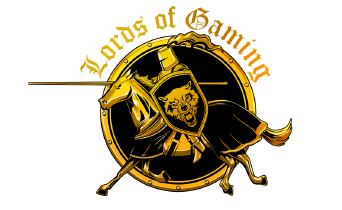
Happy New Year to you dear reader and what a way to start this year off. As the President and CEO of Square Enix, Yosuke Matsuda expressed interest in NFTs, the “Metaverse” and block-chain-based games. The information came from a new years letter from Yosuke on the Square Enix site.
Basic Info on NFTs

There is a lot of intricacies that go into the topic of NFTs and I am not an expert. As I do not have any related dealings in cryptocurrency, block-chains, or NFTs. But from the knowledge I’ve gained from listening to conversations on the topic, as well as seeing examples like Ubisoft Quartz, or Peter Molyneux’s Legacy, NFTs, or “Non-Fungible Tokens” are digital rights to items that people can purchase. NFTs can range from a low to a very high sum to own. NFTs come in a variety of forms. They can range from an image to an item in video games, similarly to micro-transactions.
How they differentiate is that they are tied to blockchains. Essentially a blockchain is a crypto-based data center. Which the recipient of an NFT is the “owner” of it and can sell it for a price they deem acceptable in crypto-currency. After selling it, the new owner can then sell it to anyone as well for a price they deem acceptable, and the cycle repeats.
What happens though is that the original owner of the NFT can still receive a cut of each sale of that NFT. Making the cycle mostly beneficial to just the creator. As Legacy recently pulled in forty million in pounds before the game launched, so the proof of concept is there. But to the player who buys in, what do they get?
What does this mean for consumers and Square Enix?

For you, the player, you would technically “own” a digital good within a game. Similar to Fortnite skins, Halo Infinite weapon charms, or Destiny 2 emotes. The catch is that the item would be limited. That’s right, what can be picked up by potentially millions of people would instead be limited to a few thousand or hundreds of players. Artificially creating scarcity within a product to entice players to buy it. Or perhaps earn it in whichever scenario. That item can then be sold off to another player in the same game within whatever methods are available. Potentially, the introduction of NFTs into video games could operate similarly to the ill-fated Diablo 3 auction house.
Diablo 3 Auction House Could Foreshadow the Fate of NFTs

The Diablo 3 auction house was notorious for creating an imbalanced economy in the game. Essentially, there were two auction houses available in Diablo 3. One where players could use the in-game earned currency to buy better loot like weapons and armor. While the second auction house permitted players to trade better loot for real-world money. Suffice to say, the auction house experiment didn’t last long. It was introduced in 2013 and shuttered by the following year in 2014.
Effectively, NFTs could operate similarly to the Diablo 3 auction house. Albeit NFTs introduce their own unique twist on microtransactions. NFTs could become a microtransaction held by specific players that feed into past and future owners that benefit only them from a financial standpoint. Now let’s circle back to Square Enix and what was Yosuke stated about the subject. Specifically:
The driver that most enables such self-sustaining game growth is diversity, both in how people engage with interactive content like games, and in their motivations for doing so. Advances in token economies will likely add further momentum to this trend of diversification. I see the “play to earn” concept that has people so excited as a prime example of this.
The acknowledgment of “self-sustaining” stems from the fact that Square Enix would be the original owner of the NFTs and therefore would make money from each sale players make in-game. However, he does acknowledge the worry of NFTs with:
I realize that some people who “play to have fun” and who currently form the majority of players have voiced their reservations toward these new trends, and understandably so. However, I believe that there will be a certain number of people whose motivation is to “play to contribute,” by which I mean to help make the game more exciting.
The usage of “excitement” in his statements refers to addiction. As players would continue to play the games to acquire these items and sell them off. This is a very unhealthy practice to place upon players. As some would suffer financially at the hands of people looking to make a quick buck.
Steer Clear of NFTs
I am someone who supports creators pursuing their artistic vision. However, this pursuit does more harm than good. As it only seeks to create an endless cycle of monetization on top of the various forms of monetization we have currently. Base game prices, subscriptions for games, microtransactions, DLC, buyable digital artbooks, and soundtracks. One would assume, from the creators of Final Fantasy 14 which is so great and successful it had to be delisted because they cannot handle everyone trying to play it, that seeing their artistic vision fulfilled today would bring about artistic integrity for the future.
Some developers even had to drop the idea of NFTs for their games, like Stalker 2 recently. Stalker 2 is from a much smaller development team that could have benefitted for the future. But they listened to feedback and put their artistic integrity over monetary gain, for better or for worse. With Square Enix and Ubisoft dabbling in the ideas of NFTs, it is concerning that even platform holders or other favored publishers will chase them as well.
If that happens, games will stop being works of art and will become a depressing interactive marketplace.


